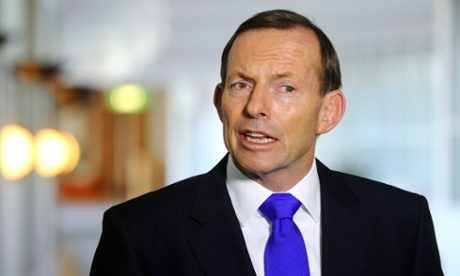Taxpayers still on hook for $13.6m funding decison by Tony Abbott for takeover of a small hospital in northern Tasmania

Tony Abbott enraged the states by telegraphing an $80bn cut in grants for health and education services in last week’s budget – but the economic statement also reveals taxpayers are still on the hook for a controversial and costly decision he took as health minister in 2007 to take over a small hospital in northern Tasmania.
Last week’s “austerity” budget allocates $13.6m in 2014-15 to the Mersey Community hospital in Tasmania to upgrade fire safety systems and extend the heads of agreement covering the management of the hospital for another 12 months. The $13.6m is on top of $62.7m in base funding for the hospital which is already factored into the forward estimates.
Canberra’s intervention in Mersey began in 2007. When the Tasmanian government announced a downgrade of the Mersey hospital, Abbott as federal health minister stepped in, arguing the commonwealth would run the hospital.
The commonwealth assumed ownership of the Mersey Community hospital from the Tasmanian government on 23 November, 2007. Since 1 September, 2008 the hospital has been operated by the Tasmanian government with commonwealth funding. The hospital is located in the marginal federal electorate of Braddon.
The Mersey intervention was badged by Abbott not as a naked political pork-barrelling for a marginal seat, but as a seismic structural shift and a sign of things to come.
“Where something is sufficiently important and where the commonwealth can make a difference, I think arguably it should,” Abbott said in August 2007. “This idea that there is some fixed and immutable boundary dividing what’s the commonwealth’s and what’s the states’ – I just think is wrong.”
In his 2009 book Battlelines, Abbott was still heavily in centralist mode, blasting the states for their record in managing health and hospitals, and proposing constitutional change allowing the national government to propose laws in all areas.
“It wouldn’t abolish the states,” Abbott said of the proposal, “but because commonwealth law prevails over state law to the extent of any inconsistency, it would mean that they could not jeopardise policy in areas where the national government was determined to intervene.”
Abbott has now done an about-turn.
He says he wants state governments to be “sovereign in their own sphere” – language he’s borrowed from the recent Commission of Audit.
Its report presaged a major overhaul of commonwealth-state relations by arguing that services like health and education should return to be managed and funded predominantly by the states, rather than subjected to significant oversight by Canberra.
